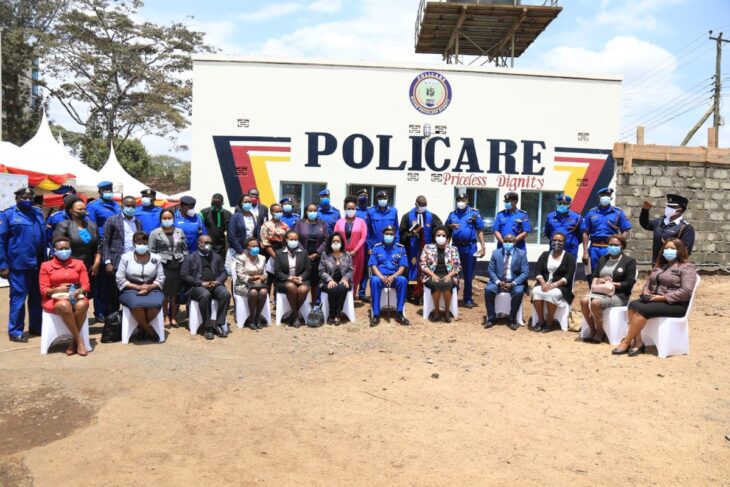By Susan Kendi,
NAIROBI, Kenya, Jan, 6- Kenyans will line up for hours on Tuesday, August 9, 2022, to cast their votes.
However, the question is whether the government is sufficiently prepared to protect its citizens and more so to prevent and respond to gender-based violence?
As the world marks the 30th anniversary of the 16 Days of Activism against Gender-Based Violence (GBV) under the campaign theme, “Orange the World: End Violence Against Women”, this triggers a reflection on the gaps and challenges that the Covid-19 pandemic has exposed in the prevention and response of gender-based violence and most importantly what measures we need to put in place as a country we head towards the electioneering period.
A report launched by UN Women on the eve of the International Day for the Elimination of Violence against Women revealed that 1 in 2 women reported that a woman they know experienced a form of violence since the COVID-19 pandemic hit.
Only 1 in 10 women said that victims would go to the police for help. The report was based on data from 13 countries during the Covid-19 pandemic.
In Kenya, the 61-page report by the Human Rights Watch, “I Had Nowhere to Go,” shed light on how the government’s failure to ensure services to prevent gender-based violence and provide assistance to survivors under its Covid-19 response measures led to a spike in sexual and other violence against women and girls.
“The pandemic is not the first time Kenya has witnessed increases in violence against women and girls during crises. The government should have anticipated such an increase, but tragically as in the past, it turned a blind eye and failed to protect women and girls against violence,” said Agnes Odhiambo, senior women’s rights researcher and head of the Nairobi office at Human Rights Watch.
The pandemic brought to the fore, most of the already existing inequalities but in a greater magnitude.
It exposed the gaps in accessing essential services such as quality and timely medical treatment, limited access to shelter or safe houses, protection and financial assistance, mental health and psychosocial support, limited access to justice and inadequate funding from both the national and county governments for GBV prevention, response, and monitoring.
As a country, we have laws in place to tackle various forms of gender-based violence, including the constitution of Kenya 2010, the Sexual Offences Act (2006), the HIV and Aids Prevention and Control Act (2006), the Prohibition of Female Genital Mutilation Act (2011), the law of evidence, protection against domestic violence the Employment Act (2007), the Protection Against Domestic Violence Act (2015), and the National Policy on the Prevention and Response to Gender-Based Violence. However, execution is still a challenge.
“I am a firm believer that we have comprehensive and progressive laws that have very forward-looking provisions that can ensure that perpetrators of sexual violence are held to account…However, in my view, the issue has never been laws; the biggest issue or the biggest gap that we have is in implementation of those laws,” said Naitore Nyamu, the Head of Physicians for Human Rights (PHR) Kenya office, during a phone interview.
“How come that we still have survivors being intimidated by perpetrators? How come we have evidence being interfered with despite having very great laws that provide for all the things. Survivors still cannot access psychosocial support in some instances, and we have policies that guide that. So, our issue at the moment is not the laws; the biggest issue is the implementation of those laws and holding people to account,” she added.
According to the Kenya National Commission on Human Rights(KNCHR) report titled “Silhouettes of Brutality”, statistics revealed that sexual and gender-based violations were perpetrated more by the police at 54.5% compared to civilians at 45.5pc, with women forming the larger percentage of victims and survivors.
The report further highlighted that more than 90pc of the victims and survivors were from the lower-income economic bracket, earning less than a dollar a day.
Over half of them lived in informal settlements within the urban areas, and a few cases were reported from the rural areas.
Holding elections during the Covid-19 pandemic alongside the restrictions of curfews and lockdowns that come with the pandemic might further spike the gender-based violence cases.
Based on this and previous election cycles, the pandemic offers an opportunity for the government to correct the failures and gaps by building a strong solid human rights-based framework that will handle any future emergency-related sexual and GBV ahead of the planned general elections in 2022.
The response needs to be “comprehensive, integrated, continuous, coordinated, multisectoral, and across all levels of response” and tailored by a survivor-based approach where the survivors are at the centre of the response.
Further, there needs to build the capacity of police officers capacity and service providers on how to document, investigate, and collect evidence that will be used in court.
There is a need for gender desks in police stations to offer a safe environment to allow victims to report cases without fear of stigmatisation or ridicule.
There is also a need to sensitise the public on the free toll number and ensure favourable attitudes and behaviours that are critical for the prevention and response of GBV.
The author, Susan Kendi is a Multimedia Journalist and an egalitarian. She is also a Communications Officer at the International Commission of Jurists-Kenyan Section
Want to send us a story? Contact Shahidi News Tel: +254115512797 (Mobile & WhatsApp)


